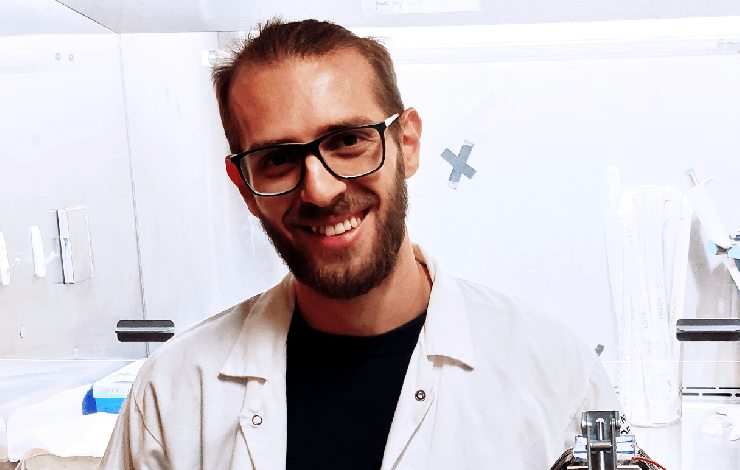18-07-2023

An investigation conducted by Bruno Guerreiro, a doctoral student at NOVA School of Science and Technology | NOVA FCT, aims to make significant advances in the preservation of critical human organs for transplantation.
During his doctoral work, Guerreiro discovered that FucoPol, a fucose-rich polysaccharide, can not only reduces the formation of ice crystals to non-damaging sizes for biological material but also controls the nucleation stage of their growth. In his latest research, published as "Enhanced Control over Ice Nucleation Stochasticity Using a Carbohydrate Polymer Cryoprotectant," he demonstrates the ability to control the cryopreservation process at its most fundamental level. Consequently, organs for transplantation could endure longer transit times and storage in biobanks, helping to alleviate the problem of organ shortage in hospitals.
Recognizing the potential of this research, the researcher received financial support from the Fulbright Portugal Program, the Luso-American Development Foundation (FLAD), and the Biologists Company to collaborate with the University of California, Berkeley.
FucoPol is a polysaccharide, which is a polymer composed of small sugars linked together, produced by a bacterium. In addition to being cryoprotective and structured, it generates viscous aqueous solutions and possesses antioxidant properties, making it beneficial for the cryopreservation process.
"We can now preserve tissues and organs with higher quality, at more accessible temperatures, and for much longer periods," confirms researcher Bruno Guerreiro. "In most cases, a donor patient provides an organ at a time that does not coincide with the moment when a patient needs a transplant, so we need to have the means to preserve it. Currently, the demand for transplants exceeds the supply by 10 times, and few people associate this problem with the lack of an efficient organ preservation system," concludes the researcher.
This scientific investigation, which focuses on understanding how biotechnologically produced carbohydrate polymers without any toxicity can serve as new alternative cryoprotectants, began in 2016 with a team of researchers composed of Bruno Guerreiro, Filomena Freitas, Maria Ascensão Reis, Jorge Silva, and João Lima, in a collaboration between the research units UCIBIO, LAQV, and CENIMAT.
The research represents a significant breakthrough as, until now, molecules such as DMSO and glycerol have been used to control ice crystal formation during the temperature descent process. However, these molecules always carry inherent risks when crystallization actually occurs. FucoPol offers a considerable reduction in this risk.
Press
Órgãos de vida longa, Expresso
Investigação pode ajudar a resolver escassez de órgãos para transplante, Observador
Investigação pode reduzir escassez de órgãos para transplante, Rádio Renascença